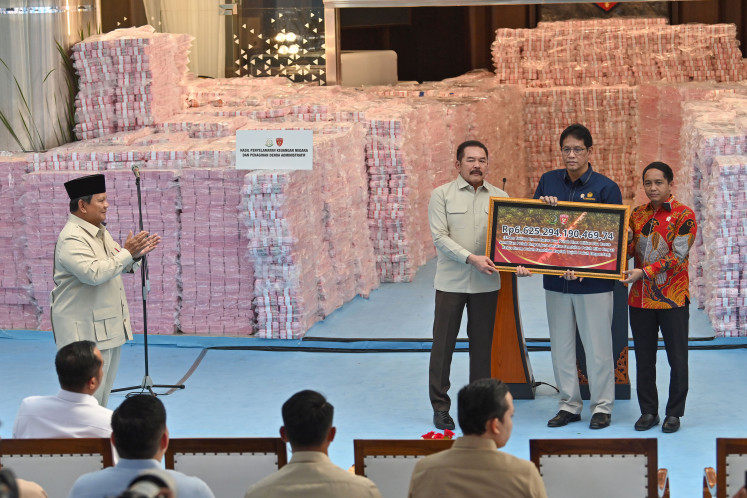Popular Reads
Top Results
Can't find what you're looking for?
View all search resultsPopular Reads
Top Results
Can't find what you're looking for?
View all search resultsLPDP overseas scholarship needs rethinking
The government's Education Endowment Fund (LPDP) sends thousands of the country’s best and brightest students each year to leading universities abroad, but is the national scholarship program benefiting our younger generation optimally, both globally and locally?
Change text size
Gift Premium Articles
to Anyone
T
he demographic bonus has been touted as a positive factor in contributing to our nation’s economic development. All media and talks cite it as a great opportunity for our nation, as the high rate of the young workforce will help boost economic productivity.
However, this narrative about the positive outcome of the demographic dividend is in dire need of a rethink, especially after seeing how the COVID-19 pandemic has altered various socioeconomic dimensions of our younger generation, including those studying abroad.
Through the Education Endowment Fund (LPDP), the government aims to leverage the demographic bonus by giving selected candidates a world-class education at various top universities. Although the intention seems good, there are critical elements that need to be reconsidered.
First, the universities included as an option for students are selected strictly based on the institution’s ranking. The rationale for this is, of course, to ensure that our younger generation is getting the best education possible.
At times, however, the ambitious mission to put our best students in elite postgraduate programs often favors privileged students. To apply to Oxbridge and Ivy League institutions, for instance, a candidate should have an excellent GPA, stellar career credentials and high scores on various aptitude tests. There needs to be acknowledgement of the various glass ceilings that do not allow many of our undergraduate students to achieve this.
For example, undergraduate tuitions are getting increasingly expensive, especially if one wants to go to a good university. Apart from that, not all undergraduate students might have the opportunity to take part in various extracurricular activities, even though this is an integral part of the selection criteria for both scholarship and university candidates.
The pandemic has especially elevated the barriers for underprivileged populations in pursuing a tertiary education. It must then seem almost impossible for students from less-privileged backgrounds to obtain a postgraduate degree at a world-class institution.


















